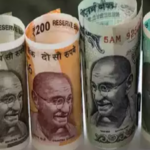NEW DELHI: The Centre has floated a draft Bill to bar all persons or entities not authorised by the financial sector regulators and not registered under any law from public lending. The new law, which will extend to the digital sector, where unathorised lending apps proliferate, will include provisions for imprisonment of up to 10 years and hefty penalties for violations, with some of the offences to be treated as non-bailable.
The move is expected to complement the digital lending guidelines published by the Reserve Bank of India (RBI) two years ago to curb unfair practices by regulated entities.
Comments and suggestions on the draft Banning of Unregulated Lending Activities (BULA) Bill have to be submitted to the department of financial services by February 13, 2025, the government said in a statement on Thursday.
Frauds by loan apps have become a big concern for the government. To check these practices, a list of 442 loan apps provided by RBI through the ministry of electronics and information technology (MeitY) has been given to Google for white-listing earlier this year. Google had then reviewed 3,500 loan apps and removed around 2,200 digital lending apps (DLAs) from its Play Store.
The draft Bill also proposes that investigations be handed over to the Central Bureau of Investigation (CBI) if the lender, borrower, or properties are located in more than one state or outside India, and if the total value of the amount involved is of such magnitude as to significantly affect the public interest.
One of the main issues in the digital lending domain is that the consumers are not aware of the real lenders as there is no physical interaction in the lending transaction. Unregulated entities used this to camouflage as authorised lenders, affecting the entire ecosystem. “BULA, with the proposed central repository of all the regulated lenders, intends to establish a foundation for ethical lending,” said Mayank Arora, director-regulatory, at Nangia Andersen India. “The intent of the proposed legislation is strong, as we see criminalisation of offences and punishments for persons involved as accomplices, apart from persons directly involved,” Arora added.
The draft law lists 20 legislations that govern regulated lending activities under the First Schedule of the Constitution, including the RBI Act, Banking Regulation Act, SBI, LIC, NHB, RRB, Multi-State Cooperative Societies, Chit Funds and the State Money Lenders Act, among others.
According to the draft law, no court other than the designated court shall have jurisdiction in respect of any matter to which the provisions of this Act.
Any lender who lends money whether digitally or otherwise in contravention of this law and uses unlawful means to harass and recover the loan would face 3-10 years imprisonment with fines twice the amount of the loan. Repeat offenders could be imprisoned for 5-10 years with fines up to Rs 50 crore.
Under the law, both the Centre and states can make rules to implement the proposed Act.
The Centre will have the power to designate an Authority to create, maintain and operate an online database for information on lenders operating in India, and which shall have the facility for the public to search for information about lenders undertaking regulated lending activities and shall also facilitate reporting of illegal lenders or cloned lenders.
Besides investigating agencies, the competent Authority would have to share all information to regulators and income tax department. Considering that the financial services space (particularly with digital lending) has evolved as a dynamic sector in many ways, the regulators have been constantly striving to regulate it responsibly. Primarily, it has been regulated entities (REs) engaged in unfair practices and lending by unregulated entities.
Source: The Financial Express

 Rupee Slides Past 85 Vs $ To Hit New Low After Hawkish US Fed Outlook
Rupee Slides Past 85 Vs $ To Hit New Low After Hawkish US Fed Outlook 